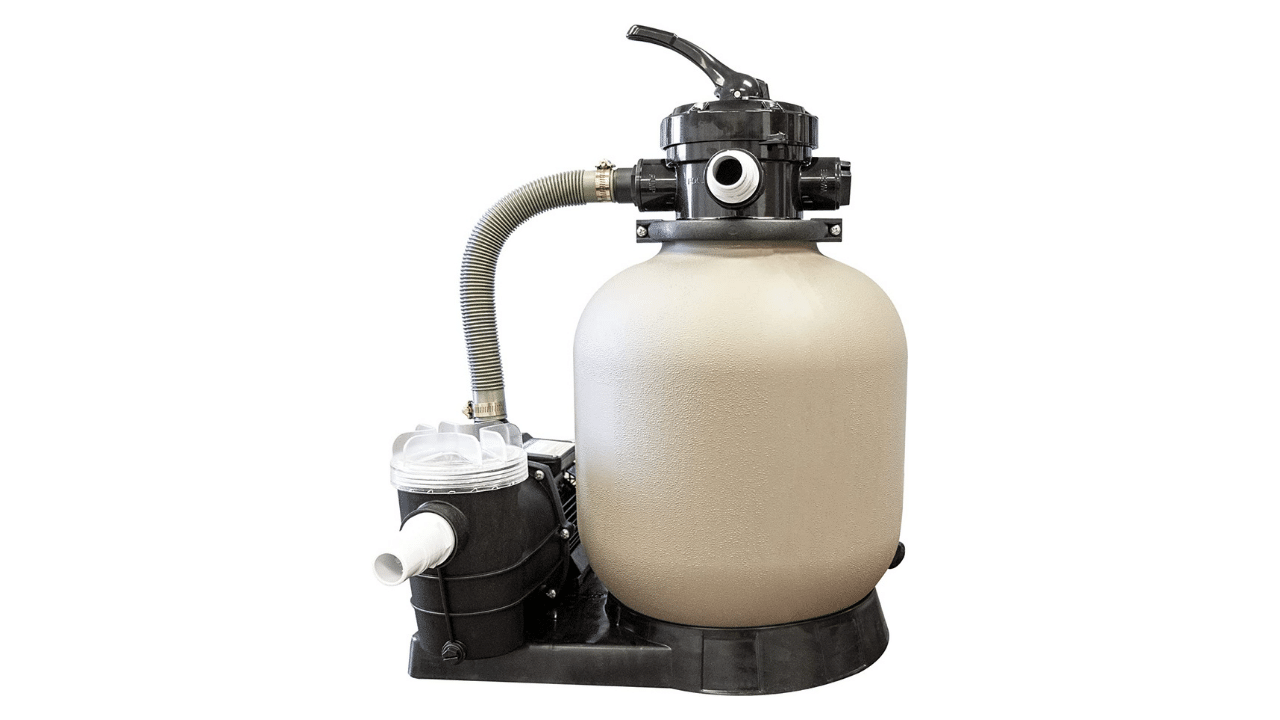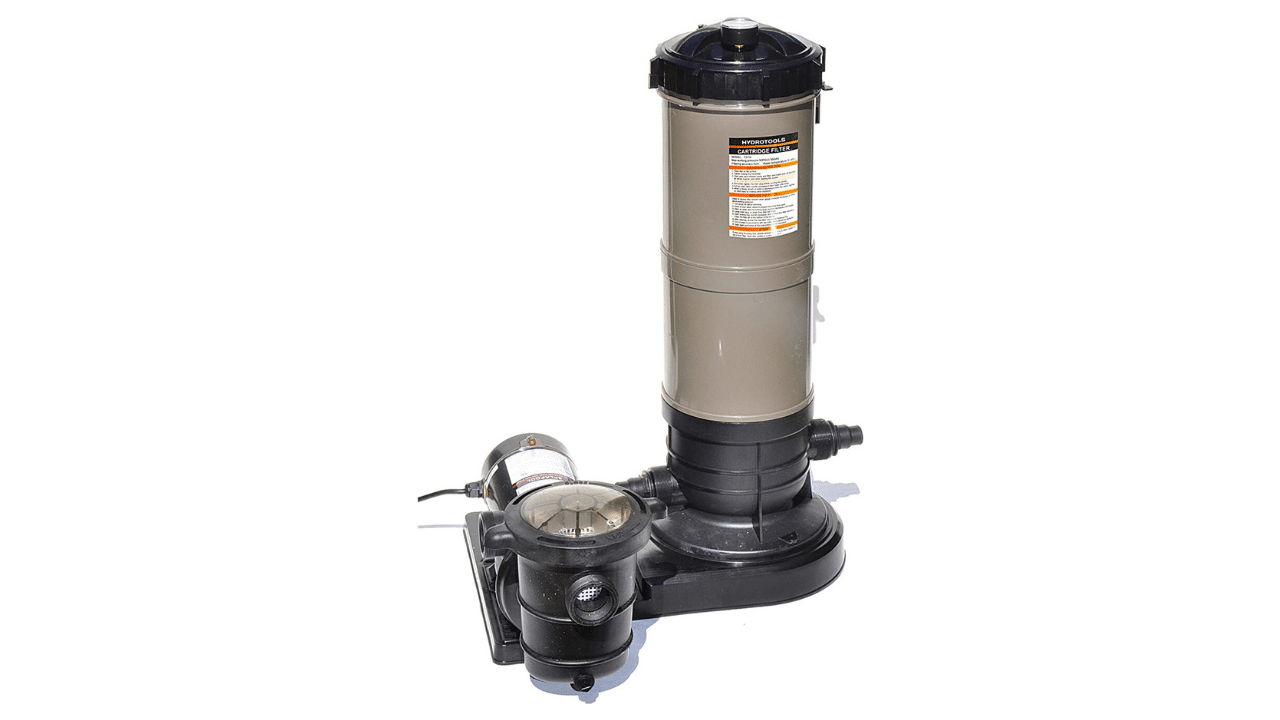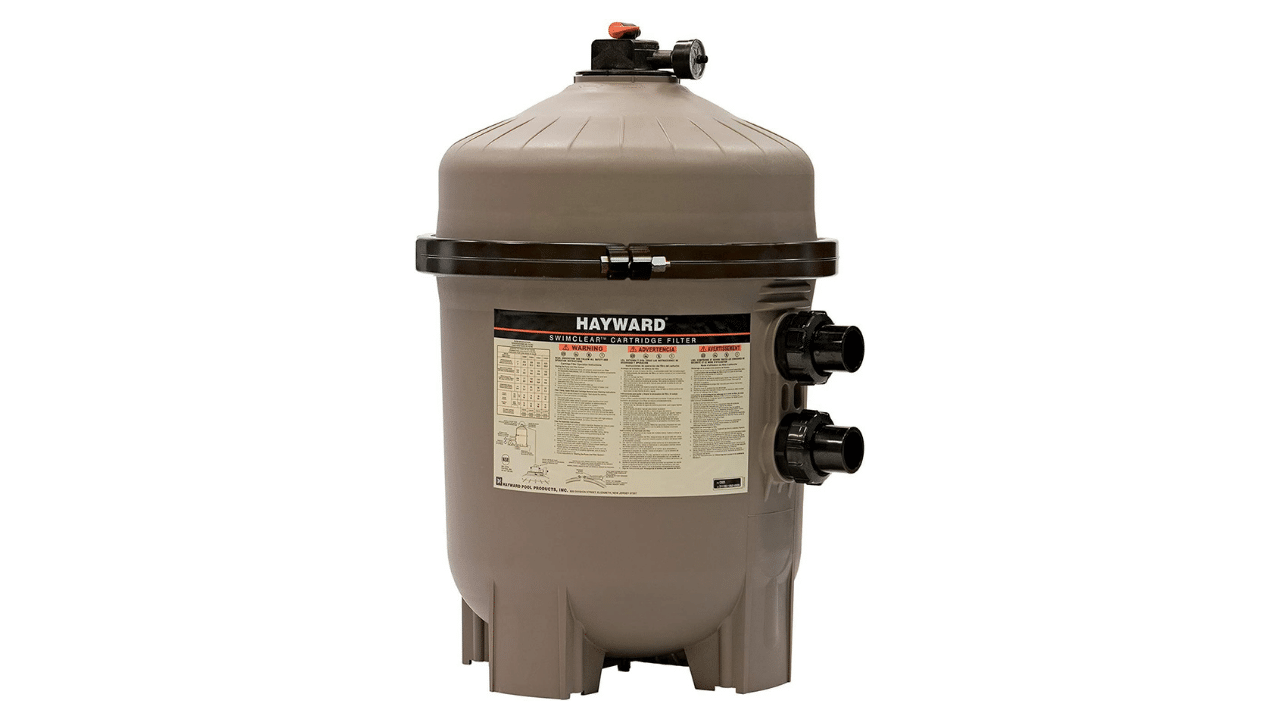If your pool filter system has seen better days, such as struggling for the last few seasons and having you do some extra work and chemicals– it might be time to consider a timely replacement.
Replacing your pool filter system will cost you around $1,800 to $2,100 each. Depending on the replacement scope, conditions, and chosen finish options, total costs will vary.
After 15 years of seasonal use, it would be best to replace your pool filters to continue enjoying optimal water quality with relatively minimal maintenance.
Pool Filter System Replacement Average Costs
On average, replacing your pool filter system will cost anywhere between $1,800 and $2,100 for labor and materials per filter. Several factors will determine the total project expenses, with the filter assembly taking a significant fraction of the cost. Prices will also vary depending on the local labor rates, current prices of the parts, and other needed supplies.
If you fail to purchase an identical replacement model for your pool filter system, your contractor will need to install a new inlet and outlet pipes to ensure the new unit will operate smoothly. You may also need additional lines to link the pump and filter properly to your pool heater and other customization features, including a chlorination system.
Pool Filter System Replacement: By Type
Today, there are three different types of pool filters: sand filters, cartridge filters, and Diatomaceous Earth or D.E. filters. You can count on all three classes to do their job of keeping the pool clean and crystal clear. (Related: Understanding Your Pool Systems: Sanitation, Filter, and More!)
Sand Filters

Average Cost |
|---|
$450 to $1,200 (or more) |
The most popular type of pool filter is a sand pool filter, which uses special sand media to filter particles 20 to 40 microns in size. The sand lasts for 5 to 7 years before it needs timely replacement. Sand pool filters will require backwashing every few weeks, flushing out any trapped dirt, and churning the sand.
Cartridge Filters

Average Cost |
|---|
$500 - $1,800 |
Cartridge pool filters can sift through foreign particles from 10 to 20 microns, and it does this by screening them at the surface. It will require replacement after 2 to 5 years, depending on the size and how frequently it is being used. If the cartridge gets too dirty to the point where it doesn't allow normal water flow, it will be removed to be manually hosed clean (instead of simple backwashing).
DE or Diatomaceous Earth Filters

Average Cost |
|---|
$520 to $2,000 |
D.E. pool filters are considered one of the most efficient options since they effectively filter out particles as small as 3 microns. Diatomaceous Earth refers to an organic, porous powder that has microscopic pores. These efficiently trap even the tiniest particles. This filter has an average lifespan of 7 to 10 years. And similar to sand filters, D.E. filters will need backwashing to clear out the old, stored dirt and D.E. powder.
All in all, you can rely on the three pool filter types to get the job done. But to make the selection process easier for you, we strongly recommend looking into a sand or cartridge filter as they are low-maintenance options that keep the pool clean and clear.
Signs that Your Pool Filters Need Replacing
A poorly-working pool filter can be simply due to dirt build-up. But if cleaning your filter isn’t enough, you will need to consider a total filter change instead. Here are some signs to look out for:
How to Size a Replacement Pool Filter
To ensure you're choosing the right replacement pool filter size, you should stray away from filters rated for smaller pools than what you have at home. Keep in mind that the size of your new pool filter must directly correspond to your pool size and the pump's power. Although oversizing the new pool filter allows finer filtration (given the water flows at a slower velocity), backwashing may not be as effective as expected. With that in mind, it's always best to follow the suggested filter sizing as much as possible.
Once your new pool filter is successfully installed, piped, and sealed, it's now ready to filter your pool efficiently! Ensure to follow regular maintenance checks to ensure the new filter system remains at peak efficiency for the next few years.
Cleaning vs. Replacement: When to Clean your Pool Filters Instead
In some cases, you may not necessarily need to replace your pool's filter system once you notice the filter quality is in decline. Several homeowners follow a regular cleaning schedule to ensure these filters operate at total capacity.
Remove it and rinse it with a brush and a hose for cartridge pool filters. If you have a specialist cleaner (recommended), it would be best to use this. Aim to clean your filter at least once a week to ensure optimal longevity.
If you have a sand-based pump filter system, you will need backwashing. Most pump systems are already equipped with a backwash option, which enables the water to run through the opposite way. This effectively lifts away any trapped, clogged dirt from the filter. Backwash your pool filters when the pressure has normal levels by about 8 to 10 psi. If the filter is heavily used, you will need to do this every other week (or more frequently).
Frequently Asked Questions
How do pool filters work?
Pool filters are not complicated at all. A pump forces water down a narrow passageway that only enables clean water to pass, collecting any dirt particles and removing them from the water.
How long do pool filters typically last?
Every 8 hours, your swimming pool pump system may pump 60-70,000 gallons of water. That's a significant level of work! Swimming pool filters eventually grow less effective with age! When a filter reaches the end of its lifespan, it becomes clogged, dirty, and inefficient. The amount of dirt your pool filter must remove determines its duration. If your pool is maintained correctly, you should expect the following life expectancy on average:
How often should I change my pool filter?
When your pool filter loses its quality, outlives its intended lifespan, or exhibits signs of damage, it's time to replace it. Symptoms usually occur every five years. However, they can appear at any time, every year or every 15 years.
Which pool filter type is right for me?
The filter you choose is determined by how you want to use and maintain your pool. A cartridge is an optimal option if you are looking for something that only requires low upkeep. This requires a monthly wash and replacement every few years. They are also the most affordable. A sand pool filtration system is the best option if you want your pool to last long. If you use your pool frequently or have a lot of people in it, these filters are excellent. The DE filter is the pool filter system with the most cleaning power. These filters capture more contaminants since the powder is more refined than sand filters.
Is hiring a pro to replace my pool filter system a good investment?
Pool filters are operated at high pressure of 10 to 20 psi. All fittings must be carefully installed to avoid leaks and equipment damage and ensure pressure endurance. Plumbing knowledge and expertise in installing pool equipment ensure that the system runs well each summer.
